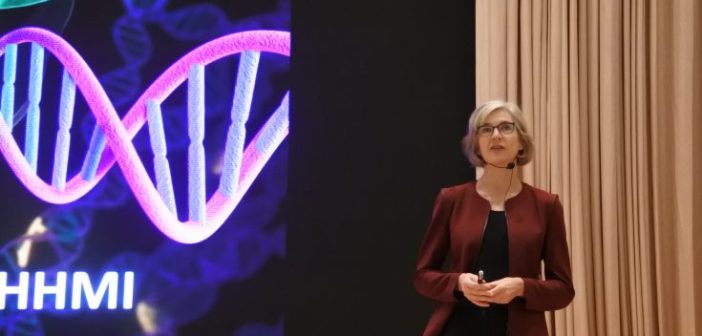GeneOnline’s Top 10 Editor’s Picks for 2021
While the Covid-19 pandemic rose and fell (and rose again) in most parts of the world, biotech and pharmaceutical companies continue their ventures into the unknowns of the human body. The therapies that arise from painstaking research and development efforts have gone on to clinch regulatory approvals, raise revenue, and put previously-unknown firms into the spotlight. This year, unbelievable sums of money exchanged hands, while controversies and victories sometimes came hand in hand.
At GeneOnline, we have assembled 10 notable events that define the year of 2021. While the listed news do not cover every remarkable happening that has occurred throughout the year, those even slightly familiar with biotech may be able to recognize some of them.
1. Game-Changing Antiretroviral Regimen from ViiV Receives FDA Approval
On January 21, Viiv Healthcare won FDA approval for Cabuneva as the first long-lasting treatment for HIV, giving those living with the disease an alternative over the traditional daily three-drug regimen.
Cabuneva is a combination of cabotegravir and rilpivirine, two antiretroviral drugs. The former blocks the virus from fusing its genetic material into the DNA of host cells, while the latter inhibits the reverse transcriptase protein essential for viral replication. Together, the regimen has been shown to maintain the number of detectable viral RNA to less than 50 copies/mL.
The combo is first given orally; if tolerated, treatment proceeds as monthly injections. According to two clinical trials on Cabuneva, nine out of 10 patients have said they preferred the combo over their previous daily regimen.
Continue reading here.
2. J&J’s Single-Shot Vaccine Becomes Third to Bag FDA’s Emergency Use Authorization
Hot on the heels of Pfizer and Moderna, Johnson & Johnson’s Covid-19 vaccine was the third to get emergency use approval in the US on February 27.
J&J’s shot is distinct from its mRNA-based brethren as it is an adenovirus vector vaccine that uses a full-length, stabilized variant of the SARS-CoV-2 spike protein. The vaccine was found to be 85% effective in preventing severe disease and 66% effective in preventing moderate to severe Covid-19.
Many believed that it would accelerate the vaccination programs with its single-dose inoculation and ability to be stored in a regular fridge instead of ultra-low temperature freezers.
Continue reading here.
3. Ginkgo Bioworks to Go Public Via a Colossal SPAC Deal Valued at $17.5 Billion
23andMe’s $3.5 billion SPAC was thought to be the year’s biggest, until Ginkgo Bioworks blew it out of the water with the announcement of its merger with Soaring Eagle Acquisition Corp on May 11. Totaling $17.5 billion, the towering SPAC would see the “Organism Company” go public on the Nasdaq.
Founded in 2008, Ginkgo Bioworks was tapped as one of CNBC’s Disruptor 50 in 2020 for its approach in reprogramming organisms through DNA modification. Its products range from producing next-generation antibiotics, modifying strains for sustainable agriculture, and culturing ingredients for flavor and fragrances.
Continue reading here.
4. We Have a Winner! Amgen Grabs First FDA Nod in the Race for Undruggable KRAS
Once thought to be an undruggable target, the KRAS mutation was finally overcome in late May when Amgen announced a surprise FDA approval for Lumakras (sotorasib) to treat patients with locally advanced or metastatic non-small cell lung cancer (NSCLC) with a KRAS G12C mutation. The US approval was based on a Phase 2 trial, in which 36% of patients saw significant reduction in tumor size.
Amgen is looking towards additional indications for their blockbuster candidate, with results for a Phase 2 in colorectal cancer expected by the end of 2021.
Amgen’s victory against KRAS has emboldened competitors Mirati and Eli Lilly to step up efforts for their drug candidates, both of which target the same mutation and aim to treat solid tumors.
Continue reading here.
5. Biogen’s Controversial Alzheimer’s Drug Wins Historic FDA Approval
Few moments were as divisive as the FDA approval of Biogen’s drug for Alzheimer’s disease, Aduhelm (aducanumab). The beta-amyloid busting drug was supposedly dead, dumped by Biogen after an independent futility analysis in March 2020, only to be revived six months later after the company said new analyses proved it worked.
The FDA nod makes Aduhelm the first approved treatment for AD in nearly 20 years, but hinges on the bet that clearing beta-amyloid could slow progression of the disease. The approval has been celebrated by patients of AD and their families, but was met with skepticism or dismay from experts, with some questioning the evidence presented by Biogen.
Continue reading here.
6. A New Era Begins! Intellia Reports First Clinical Proof for Direct CRISPR Genome Editing in Humans
CRISPR hit the headlines once again after Intellia Therapeutics revealed first-ever clinical proof for directly editing the human genome using the technology. In a joint announcement with Regeneron Pharmaceuticals, Intellia reported positive data from a Phase 1 trial of NTLA-2001 in the treatment of transthyretin (ATTR) amyloidosis, a rare and deadly protein misfolding disorder.

The trial is the first to administer the CRISPR drug intravenously for in vivo genome editing in humans. At the highest dose, the drug reduced levels of transthyretin by 96%. In comparison, long-term standard treatments only managed 80% reduction. What’s more, NTLA-2001 promises patients a one-time solution, by inactivating the TTR gene that lies at the root of the disease.
Intellia hopes that by tackling the root cause of disease, the CRISPR approach will provide life-changing, lifelong benefits to patients.
Continue reading here.
7. Japan’s SoftBank Buys $5 Billion Stake in Roche, Becoming One of its Largest Investors
Snapping up a $5 billion stake makes quite a lot of noise, as Softbank found out when it became one of Roche’s biggest investors. Orchestrated by SB Northstar, Softbank’s investment arm, the deal was built on the belief that Roche’s Genentech was severely undervalued. Also, SB Northstar thinks the Swiss drug giant’s $380 billion market value could balloon to $1 trillion.
While the news raised a few eyebrows, Softbank’s investment makes sense when considering Roche’s steady growth over the years. Roche reported solid revenue in 2020, aided by its Covid-19 testing services, and since 2018 has acquired several notable companies like Flatiron Health, Foundation Medicine, and GenMark Diagnostics.
Continue reading here.
8. Illumina Completes GRAIL Acquisition Without Approval From FTC
Despite fierce opposition from the Federal Trade Commission (FTC) and EU antitrust regulators, Illumina followed through with its acquisition of GRAIL Inc. for $7.1 billion on August 18.
GRAIL, which spun out from Illumina in 2016, had developed a blood test, Galleri, said to be capable of detecting 50 different types of cancer before they become symptomatic. Illumina has argued that the acquisition will speed up development of Galleri and bring the product to market at an affordable price. Furthermore, the two companies were not competitors in the same market, making the acquisition a vertical one.
However, the FTC has claimed that the transaction will give Illumina monopoly over the market, while the European Commission has issued a probe into the matter.
Continue reading here.
9. Merck Announces Its Oral COVID-19 Drug Cuts Risk of Hospitalization and Death by 50%
It seemed like Merck was falling way behind Pfizer and Moderna in the Covid-19 vaccine race. So the pharma giant decided to channel efforts into developing an oral antiviral instead, with the help of Ridgeback Biotherapeutics.
The fruit of their collaboration, molnupiravir, stunned the world when the companies announced glowing late-stage data showing that the drug could cut risk of hospitalization and death from Covid-19 by 50%. The results were enough for an independent monitoring committee to recommend an early halt. The news saw Merck’s stock jump while the shares of key competitors, such as Moderna, sank.
The secret behind molnupiravir, a ribonucleoside analog, lies in its ability to inhibit viral replication. It has shown to be effective against multiple RNA viruses beyond SARS-CoV-2, which causes Covid-19.
Continue reading here.
10. Discoverers of Temperature and Touch Receptors Win 2021 Nobel Prize in Medicine
The feeling of sun on our skin and wind in our hair – an everyday sensation, but a profound one. So profound that understanding the mechanics behind our senses merited a Nobel Prize.
This year, the Nobel Assembly announced the awarding of the Nobel Prize in Physiology and Medicine to David Julius of the University of California, San Francisco, and Ardem Patapoutian of Scripps Research Institute for their discoveries of receptors that enable humans to feel temperature and touch.

To understand the somatosensation of heat, Julius used capsaicin, a compound found in chilli peppers, and a cell line that does not respond to capsaicin. By expressing individual genes from a gene library into these cells, Julius was able to identify TRPV1, the gene that makes cells sensitive to capsaicin. He later found that TRPV1 was a heat receptor that activated at temperatures perceived to be painful.
Meanwhile, Patapoutian identified a cell line that gave off a measurable electric signal when individual cells were poked with a micropipette. His team shortlisted 72 candidate genes and inactivated them one by one to discover the receptor responsible for mechanosensitivity, which was later named Piezo1. A second, similar gene was christened Piezo2, and further study identified them as ion receptors that are directly activated by the exertion of pressure on cell membranes.
Since then, other temperatures and mechanosensitive receptors have been discovered, including one that was activated by cold.
Continue reading here.
| And there you have it. 10 memorable events from the world of biotech and pharma in 2021. There is never a day when the industry goes quiet on deals, breakthroughs and controversies, and we will certainly see more of these when 2022 rolls in. |
©www.geneonline.com All rights reserved. Collaborate with us: service@geneonlineasia.com









